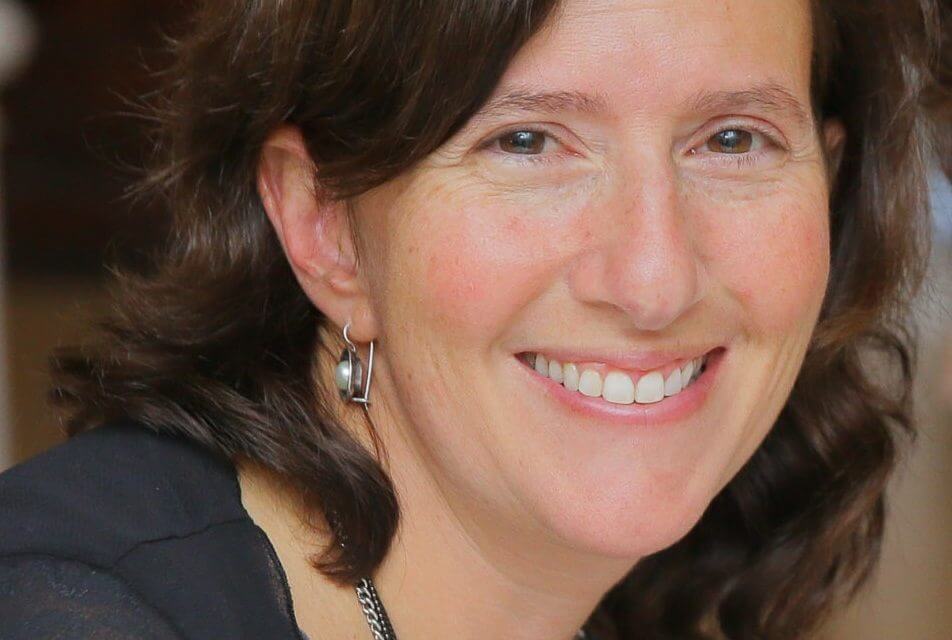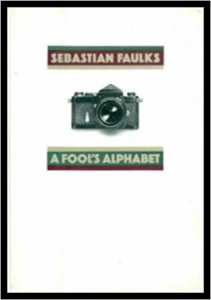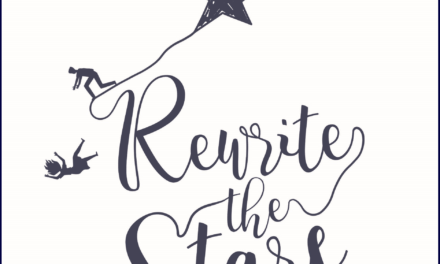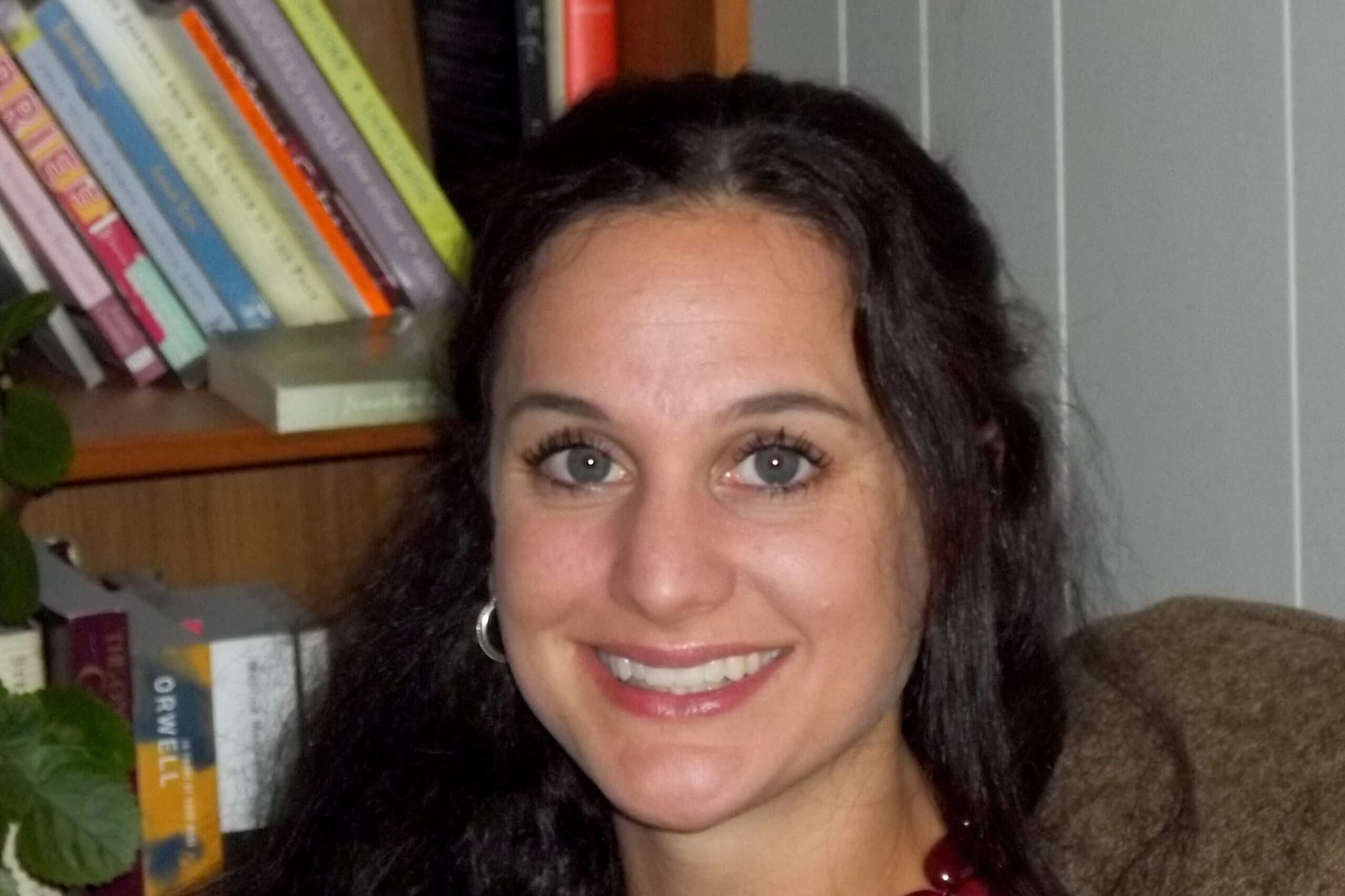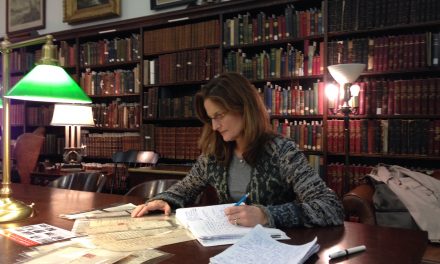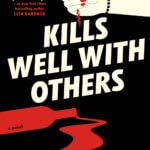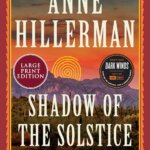Julie Zuckerman, author of The Book of Jeremiah, a debut novel-in-stories, joins me today. The Book of Jeremiah was released by Press 53 in May 2019. Julie’s fiction and nonfiction have appeared in Crab Orchard Review, Salt Hill, The SFWP Quarterly, The Coil, Ellipsis, MoonPark Review, Sixfold, descant, and The MacGuffin, among others. A native of Connecticut, she now lives in Israel with her husband and four children.
SS: What did you want to grow up to be as a child? Has that child’s desire appeared in your work?
JZ: My first career ambition was to be a librarian. My mother would take me to our local library for story time, and I thought that must be the most wonderful profession in the world—to share the gift of stories with eager readers.
SS: Have you always been driven to write? Or did you begin writing in response to a particular stimulus?
JZ: I’ve wanted to be a writer since high school. But back then, as well as in college, I had my sights set on journalism. Early in my career, however, I switched gears to become a business plan writer and later branched out into marketing. I’d always considered myself a writer, but not a creative one. About twelve years ago, an off-hand remark by a friend caught my attention. She mentioned that another friend was taking a creative writing class. I don’t know why this epiphany hadn’t come to me earlier; authors—particularly fiction writers—had been my rock stars for as long as I could remember. But as soon as she said those words, I knew that writing fiction was exactly what I wanted to do.
SS: Do you have a day job? If so, is it a distraction, or does it add another element to your writing?
JZ: Yes, I work in product marketing for a software company, and previously I’ve served as VP of Marketing for various startups. Other than writing a few off-the-cuff flash fiction pieces about the hilarity of life in high tech, I don’t think my day job affects my writing. I’m not sure I’d want to write full time. In the months leading up to and following the publication of my book, I was a complete stress case. If I had to rely on writing to earn a full-time living, I don’t think I’d ever sleep.
SS: Were you a young writer, a late bloomer, or something in between?
JZ: Late bloomer—I started writing fiction at age thirty-eight!
SS: I’ve got you beat, Julie. I started writing at sixty! Regardless of genre, what are the elements that you think make a great novel? Do you consciously ensure all of these are in place?
JZ: Most importantly, I have to feel invested in the characters. Then comes language. If those two ingredients are in place, the plot is a bit less important.
SS: Which non-literary piece of culture could you not imagine your life without?
JZ: I love musical theater. As a kid I acted in a variety of plays, and to this day I often have the soundtrack of West Side Story or Les Miserables running through my head. Haven’t seen Hamilton yet, but some day I’m sure I’ll be obsessed with that one, too!
SS: How do you give back to the writing community?
JZ: I’m in two different writing groups, where I help out setting the workshop schedules. I also organize readings for authors to come to my (somewhat out-of-the-way) hometown, so that readers can be exposed to new/local authors. I’ve also been the coordinator of a local book club for about twenty years, give or take.
SS: What would a fly on the wall see if he watched you while you are writing?
JZ: A fly on the wall would see me rising early, around 5:15, stumbling downstairs for coffee, and trying to write at my computer for an hour +/- before I have to get my kids up for school. If I have thirty minutes to spare after I get them out, I might sit in a café (coffee #2) to write for a bit before going to my day job, and then a bit more on my thirty-five-minute train ride. I work a Sunday through Thursday week, so Fridays are off for me, but my kids are in school. On those days I try to go to the library to write. Once I’m nearing the end of a draft, I’ll print pages out and mark them up by hand. Other days the fly on the wall might see me spending an hour or two on research, which might end up serving only a sentence or two in the finished product.
SS: What is the best investment you ever made in your writing?
JZ: Online classes through One Story and Grub Street; attending the Vermont College of Fine Arts Postgraduate Writers’ Conference (though I don’t have an MFA)!
SS: Do you ever incorporate something that happened to you in real life into your novels?
JZ: Absolutely! Here’s one example: when I was in fifth or sixth grade, a few neighborhood boys toilet-papered the trees in our front yard on Mischief Night. One of them had a well-known crush on me and perhaps thought this was a good way to show his affection. After the boys bragged about it on the school bus the next day, my mother invited them to a clean-up party. They came, cleaning supplies in tow (no doubt my mother had told their mothers, all good friends of hers), and when they finished, they sat eating cookies in our kitchen, no doubt feeling rather foolish. I don’t recall if I was mortified, but I certainly wasn’t surprised: this was totally something my mother would do. The anecdote made its way into one of my stories, along with dozens of little quirks of my mother and other family members.
SS: Do you think that self-revelation is part of the writing process?
JZ: For sure. It may sound strange, but I write to figure out what I think, on a wide variety of topics. Family relations, politics, specific places, and so on.
SS: What’s something memorable you’ve heard from your readers/fans? What’s been the best compliment?
JZ: One reader came up to me after an event and said, “Oh my goodness, your main character is … me! I could totally relate to him!” Another reader told me that she viewed the relationship between Jeremiah and his wife Molly as bashert, a Yiddish term that means they are a perfect match.
SS: What is your most recent book? In twenty-five words or less, tell me why a reader should start your book next.
JZ: I’m paraphrasing from and shortening the beautiful blurb I received from David Jauss, but here goes: The Book of Jeremiah contains loss and suffering, but is also laced with love, forgiveness, and salvation, acknowledging darkness while leading us toward the light—and toward each other.
SS: Who is the protagonist in your most recent work? Describe him/her in ten words or less.
JZ: Jeremiah Gerstler—son, father, husband, academic, Jew—is an outsider, at times cantankerous and lonely, at others jovial and impulsive.
SS: Can you share with us a bit about the moment when the idea for your novel first popped into your head? Did the idea come to you all at once, or did different pieces of the story come to you over time?
JZ: My novel grew out of a writing prompt: “write about someone who is definitely not you, but give your character an interest—a hobby, a career, an obsession, etc—about which you’re curious. I wrote a story about an 82-year-old man, a semi-retired political science professor. Definitely not me, though I do have degrees in political science and international relations. In the story, “MixMaster,” Jeremiah takes up baking to satisfy his sweet tooth (a hobby and a problem I do share). It’s clear he loves his family very much, but his kids find him exasperating. He’s crusty and cantankerous, but also somewhat charming. There’s a lot of eye-rolling going on. Once I finished writing that story, I knew I wanted to write an entire book about Jeremiah, to unravel his personality through stories from different points in his life and from varying points of view. I’d hit upon a voice which fascinated me, and it mattered little that he was a man and I am a woman.
SS: Was the decision of how to structure the novel obvious?
JZ: The book jumps backwards and forwards in time. I played around with the structure a lot. According to my spreadsheet, I had six different potential orders! The initial idea was to structure the book in reverse chronological order, but that didn’t work for a variety of reasons. I made notecards with themes, characters, and so on. In 2015, I attended a writer’s conference at the Vermont College of Fine Arts; my workshop leader, Ellen Lesser, helped me strategize about the structure by thinking of the book in thirds. Ultimately, I had to balance each third with stories that take place with the younger, the middle-aged, and the older Jeremiah, as well as with the five stories told from the points of view of other characters.
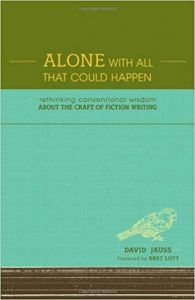
SS: In my most recent novel, I had three points of view and three timelines. I ended up giving each POV character their own chapters and had the timelines converge when a letter was passed from hand to hand. The overall structure was dictated by the protagonist’s location: Africa, the US, the back to Africa. For that novel, I read close to a hundred books about Africa, the Rwandan genocide, lots of first-hand accounts of the horrors of that war. What kind of research did you think you had to do for The Book of Jeremiah? How much was actually needed?
JZ: The Book of Jeremiah is a novel-in-stories that weaves back and forth over eight decades, from the Depression to the modern age. Throughout the stories, Jeremiah and his family members grapple with the events of their times. He serves in the U.S. Army in World War II; his wife attends the March on Washington for Jobs and Freedom in 1963; his favorite student is killed in Vietnam shortly after graduating. For the seven (out of 13) stories that take place either before I was born or prior to having any memory of my own, I turned to research via Google. As the daughter of a former American history teacher, I loved this aspect of the writing, and I encountered many events about which I’d previously known nothing. This is my idea of fun!
Some of these narrative plots or character backstories were inspired by family history. Jeremiah serves in the U.S. Signal Corps, as my own grandfather did. My research took me to long explanations of what soldiers in the Signal Corps would have been doing just after D-Day in the European theater, what kinds of equipment they would have been using, and whether Parisians would have had access to regular coffee by July 1945 or if they’d still be drinking a chicory substitute.
For one story, I dove into research about Operation Linebacker II, dubbed the Christmas bombings of December 1972, Nixon and Kissinger’s attempt to hasten the end of the Vietnam War. I read academic articles, transcripts of press conferences and reports of protests. In the story, Jeremiah attends a press briefing. What kinds of questions would the reporters have asked on the third day of the bombing campaign? With the transcripts, it wasn’t hard to imagine.
SS: What advice would you give aspiring writers?
JZ: Read as much as possible, find a writing group, take classes, and go hear authors speak whenever you can.
SS: Is there a phrase or quote about writing you particularly like or that inspires you?
JZ: When Toni Morrison passed away, among other readings, I watched a fantastic interview she did with Junot Diaz at the New York Public Library in 2013. Towards the end, she shares the first piece of wisdom she would give her students at the beginning of a creative writing class. and I loved when she said this: “I know you’ve heard all your life, ‘write what you know,’ well, I’m here to tell you: You don’t know nothing! Do not write what you know! Write about a young Mexican woman working in a restaurant who can’t speak English, or about a famous mistress in Paris who’s down on her luck. [When they take this advice], they really do well. They write way out of the box. Once you open that door and say, ‘I don’t want to hear about your grandmother. Forget that. Let’s go somewhere else.’
SS: Toni Morrison is one of my all-time favorite authors. One day at the clinic, I was chatting about reading and writing while stitching up a cut on a woman’s hand. She asked, “Have you heard of my aunt, Toni Morrison?” I fan-girled big-time while trying to focus on closing the laceration. What’s the best writing advice you’ve ever received?
JZ: Always keep honing your craft. Around the time I thought I was done with the writing The Book of Jeremiah, I met a writer and teacher whose first book was just coming out. I asked her what else I should be doing, and she gave me that advice. It didn’t matter that I don’t have an MFA and that I live abroad, I could seek out online classes, she said. Not only has my writing improved as a result of taking classes through One Story, Gotham, Catapult, Grub Street, and Kathy Fish, but I’ve met wonderful writer friends from all over the world.
SS: What marketing strategies have borne the most fruit for you?
JZ: My Facebook author page and hustling to get as many events as possible. Since I’m with a small press, where it is print-on-demand, my books aren’t in most bookstores. As I live abroad, whenever I’m in the States for personal or business reasons, I try to do as many events as possible. This could be in the form of a reading series, events at synagogues, or events in people’s homes, where they invite their literary-minded friends. I’ve loved every single one of my events, even the ones with intimate (re: tiny) audiences.
SS: In your view, who are the best authors of literary fiction?
JZ: Philip Roth, Jhumpa Lahiri, Elizabeth Strout, Vikram Seth, Margaret Atwood, Edith Pearlman, Jonathan Franzen, Andrea Barrett, Donna Tartt
SS: If you could have a character from your novel team up with a fictional character from another author’s universe, who would it be and why?
JZ: As I was writing, I often thought of my character, Jeremiah Gerstler, as a Jewish male version of Olive Kitteridge. Tough and crusty on the outside, but at heart, decent people with good intentions. Their behavior often confounds the people to whom they are closest, but this doesn’t detract from a strong undercurrent of love. I think they’d make an interesting team.
LIGHTNING ROUND:
Describe your books in 3 words: Anyone’s family member
Favorite thing about writing literary fiction? Character-driven, meaning the characters drive the plot, not the other way around
Another genre that you would love to write: Narrative non-fiction
When writing, are you a night owl or morning person? Morning person
Pantser or Plotter? Pantser
Book you’re currently reading: A Fool’s Alphabet by Sebastian Faulks
Your favorite guilty pleasure: A buttery almond croissant, along with a large coffee
********************
An excerpt from the story “Emeritus” in The Book of Jeremiah
(2004)
A student sprang into Jeremiah’s path as he strode down College Lane, nearly knocking him over. “Sorry, excuse me,” the student said, holding up a Frisbee as an explanation. Jeremiah wanted to say, Shouldn’t you be in class? Or Get your eyesight checked, young man! Instead, he glowered, jaw set under his gray goatee. The boy’s face was familiar; Jeremiah had seen him in Franklin Hall waiting for office hours. Used to be, eager students would stop Jeremiah all the time as he walked the cobblestone corridors of campus, asking him to consult on research papers or clarify points made in class. Nowadays, most political science majors didn’t know Professor Emeritus Jeremiah Gerstler, even when they tripped over him.
The crisp autumn air snapped at Jeremiah’s fingertips. The campus was awash in campaign banners and students pushing Kerry/Edwards buttons. A lone Young Republican stood over a folding table, talking into his cell phone, asking if he could close for the day. The oaks and maples dotting the pathways painted a picturesque postcard of New England—melded hues of crimson, gold, and fiery orange. Jeremiah missed roaming the grounds daily, missed having to show up more than once a week for his graduate-level seminar, but Molly and the children said he’d get used to it. They’d encouraged him to reduce his teaching load. The title “Emeritus,” conferred over the summer, a week or so after he turned seventy-eight, was starting to take on a bitter aftertaste: he now had to share his office with two adjuncts due to space limitations, and there’d been other slights, though he couldn’t be sure if they were intentional. If the Frisbee player portended things to come, Jeremiah would soon become unseen, an obstacle in some younger person’s way.
His purpose today was to find Jim Blackwell, the department chair, to discuss a ridiculous notion being promoted by the provost: mandatory coaching for all instructors in certain departments, newbies and tenured professors alike. The email had arrived in his inbox this morning and Jeremiah had almost deleted it, certain it wasn’t meant for him. But no, political science was one of three “lucky” departments selected for this “exciting opportunity.” A teaching coach would assess classes and make suggestions on teaching style, how to engage the students, etcetera, etcetera. Someone was going to come into his classroom and tell him how to teach after forty years at this place? Ha! Thanks, but no thanks. Anyone with the title “Emeritus” ought to be exempt.
Jeremiah arrived at Franklin as Jim’s Wednesday afternoon class ended. A swarm of students spilled out of the lecture hall. The air was abuzz with utterances like “blown away by the lecture” and “that guy is freakin’ brilliant.” Inside, at the podium, several fawning undergrads surrounded Jim like he was a celebrity. Damn. Jeremiah’d always done okay with his students, but he’d never heard effusive praise like this. He’d been Jim’s mentor when the younger man arrived on campus, twenty-something years ago, and he was proud of him, but damn. He felt a sudden, stabbing sense of dejection: delivering lectures and leading a room full of seventy or eighty students in stimulating discussions had given him immense satisfaction. Teaching a small seminar couldn’t compare. At least he had the teach-in on the election to look forward to in a few weeks: his session on the candidates’ positions on global trade was typed and waiting to be delivered. Perhaps, if the session went well, he’d develop a syllabus for a new course. He had ideas.
********************
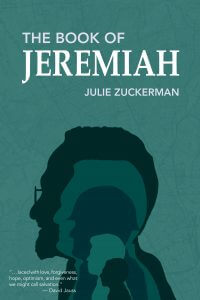
Julie can be found on here on social media:
